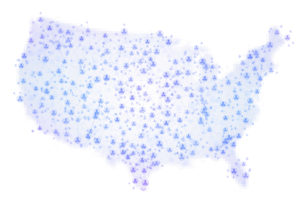** Is the All State Nationwide Class Back for False Advertising Plaintiffs?**
By: Brent E. Johnson

Class defense counsel, faced with a false advertising law suit seeking to certify a class of consumers across multiple states, often rely on Mazza v. Am. Honda Motor Co., 666 F.3d 581 (9th Cir. 2012) as impenetrable authority for the proposition that material differences between various state consumer protection laws preclude one single court from certifying a nationwide consumer class. Mazza was a defining “stay in your lane” case for consumer class actions – but are chinks in the armor showing?
In Mazza, defendant Honda on appeal from the lower court, which certified a class of Acura RL buyers who complained of a faulty collision-mitigation braking system, successfully argued at the Ninth Circuit that several material differences between California consumer-protection laws and those of other jurisdictions at issue precluded certification of a nationwide class. 666 F.3d at 591. Some states, for example, require plaintiffs to demonstrate scienter and/or reliance, while others do not. Id. Similarly, some state’s consumer laws have no private right of action. Id. And significant differences exist in the remedies available to plaintiffs under the various state laws. Id. Because prevailing choice-of-law analysis required that home-state law should govern each class member’s claim, the court vacated the class-certification order. Id.
Many trial courts – not just those in the Ninth Circuit – have followed the Mazza court’s reasoning and denied nationwide class certification where material differences in state laws were identified – even at the pleading stage. Gianino v. Alacer Corp., 846 F. Supp. 2d 1096 (C.D. Cal. 2012); Frezza v. Google Inc., 2013 WL 1736788 (N.D. Cal. Apr. 22, 2013) (precluding North Carolina plaintiffs from asserting claims under California law, given that the transaction at issue took place in North Carolina); Ralston v. Mortgage Investors Group, Inc., 2012 WL 1094633 (N.D. Cal. Mar. 30, 2012) (out of state adjustable-rate mortgage holders could not rely on California UCL); Maniscalo v. Brother International (USA) Corp., 709 F.3d 202 (3d Cir. 2013) (New Jersey law does not apply to South Carolina consumers); Garland v. Servicelink L.P., No. GLR–13–1472, 2013 WL 5428716 (D. Md. 2013) (Pennsylvania Unfair Trade Practices and Consumer Protection Law (UTPCPL) does not apply to Maryland residents); In re Celexa & Lexapro Mktg. & Sales Practices Litig., 291 F.R.D. 13 (D. Mass. 2013) (nationwide class of prescription anti-depressant drugs buyers could not be certified); Harris v. CVS Pharm., Inc., CV 13–02329 AB (AGRx), 2015 WL 4694047, at *4–5 (C.D. Cal. Aug. 6, 2015) (California plaintiff who purchased products in California lacked standing to bring a claim under a Rhode Island statute); Davison v. Kia Motors Am., Inc., No. SACV 15-00239-CJC, 2015 WL 3970502, at *2 (C.D. Cal. June 29, 2015) (denying nationwide certification on behalf of Kia Optima owners whose vehicle had allegedly defective electronic door locks).
But more recently, judges are taking a second look at Mazza. Judge Gillan in the Northern District of California recently stated that reading a “bright line rule” into Mazza “significantly overreads” the case. Valencia v. Volkswagen Grp. of Am. Inc., No. 15-CV-00887-HSG, 2015 WL 4760707, at *1 (N.D. Cal. Aug. 11, 2015). Rather, he stated, Mazza’s application should be limited to its choice-of-law analysis and its determination that California law should not be applied to non-California residents, rather than a wholesale edict that nationwide classes are, as a matter of law, un-certifiable. Id. citing Forcellati v. Hyland’s Inc., 876 F.Supp.2d 1155, 1159 (C.D.Cal.2012). And rather than the choice of law analysis being performed at the pleading stage on a motion to dismiss, Judge Gillan held that this factual inquiry is more appropriately addressed at the class certification stage. Id. citing In re Clorox Consumer Litigation, 894 F.Supp.2d 1224, 1237 (N.D.Cal.2012) (“Since the parties have yet to develop a factual record, it is unclear whether applying different state consumer protection statutes could have a material impact on the viability of Plaintiffs’ claims”).
Last week, the court in Kaatz v Hyland’s Inc., No. 7:16-cv-00237-VB, (S.D.N.Y July 6, 2016) (Dkt. No. 29) similarly found it premature to deal with concerns about standing to represent consumers in all 50 states at the pleading stage. Judge Briccetti stated he was part of a “growing consensus” of federal district judges who believe standing issues that go to putative class members’ commonality and typicality are better addressed at the class certification stage, rather than on a motion to dismiss. Dkt. No. 29 at 7 – 8, citing In re DDAVP Indirect Purchaser Antitrust Litig., 903 F. Supp. 2d 198, 214 (S.D.N.Y. 2012). The Kaatz case, itself, dealt with two New York residents who claimed they were misled by the marketing and labeling for Hyland’s homeopathic baby products such as Baby Teething Gel and Baby Nighttime Tiny Cold Syrup. The allegations followed the familiar trope of “natural” claims being misleading, as the product/s allegedly contained synthetic ingredients such as sodium benzoate and potassium sorbate, which are used as food preservatives. They accused Hyland of violating all 50 states’ consumer protection laws and sought to certify a nationwide class. Plaintiffs argued that even though they were all New York residents, the questions of common issues and manageability of the proposed nationwide class were better left for the class certification stage. Judge Briccetti agreed, holding that Hyland’s arguments were “premature” at the motion to dismiss stage – finding that “class certification is logically antecedent to standing when, as here, class certification is the source of the potential standing problems.” Id.
